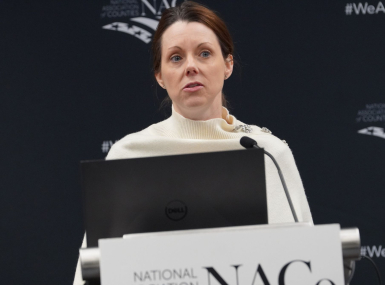Administration for Children and Family releases $750 million in Emergency Funding to Head Start Programs
Author
Upcoming Events
Related News

Key Takeaways
On June 4, the Administration for Children and Families (ACF) released $750 million in emergency funding for Head Start and Early Head Start provided by the Coronavirus Aid, Relief and Economic Security (CARES) Act. Head Start, which is federally funded and operated by a variety of local grantees—including county governments—targets children under 5 from low-income families with comprehensive programming to meet their emotional, social, health, nutritional, and psychological needs and bolster school readiness. Congress provided the supplemental funding to help Head Start and Early Head Start agencies undertake preventative, preparedness, and response activities related to the coronavirus.
County governments often play an important role in the operation of Head Start and Early Head Start programs, whether by serving as one of the nation’s 1,600 local grantees and/or contributing funding to the Head Start program’s non-federal match requirement. As with many other functions, the operation of Head Start and Early Head Start by county governments and other local grantees has changed dramatically due to COVID-19, with many agencies ceasing in-person activities but continuing to pay staff and provide virtual programming for enrolled families. Other sites have continued to serve children or are beginning to reopen and must adapt their programs to adhere to the Centers for Disease Control and Prevention (CDC) and local health guidance.
To support these activities and provide maximum flexibility to local program offices dealing with the uncertainty of the COVID-19 pandemic, the Office of Head Start (OHS), the ACF bureau which oversees the Head Start program, is distributing the additional funding directly to the each local program based on last year’s enrollment figures. The decision to directly allocate funds is a shift from the Agency’s initial guidance, which would have required grantees to apply for the emergency funds. had been published with information for applying to funding. However, the uncertainty of safely opening local program offices has led ACF to distribute funds as one-time funding by formula based on each grantee's funded enrollment.
The funding will be released on a rolling basis throughout the month of June.
NACo will continue to monitor CARES Act funds and other COVID-19 related legislation and to advocate for Congress to provide adequate funding for comprehensive programs such as Head Start/Early Head Start, to ensure that needed educational, nutritional, and social services are available to disadvantaged pre-school children.
Additional Resources:
- ACF Press Release on $750 million Supplemental CARES Act Funding
- COVID-19 and the Head Start Community
- NACo COVID-19 Resource Page
- NACo Status of Human Services and Education Funding Under Supplemental COVID-19 Packages

Attachments
Related News

National Association of Counties Launches Initiative to Strengthen County Human Services Systems
The National Association of Counties (NACo) announces the launch of the Transforming Human Services Initiative, a new effort to help counties modernize benefits administration, integrate service delivery systems and strengthen county capacity to fulfill our responsibility as America’s safety net for children and families.

Congress seeking ‘common-sense solutions’ to unmet mental health needs
Rep. Andrea Salinas (D-Ore.): “Right now, it is too difficult to access providers … and get mental health care in a facility that is the right size and also the appropriate acuity level to meet patients’ needs.”

Federal-level child welfare priorities center on supporting foster youth, families
Child welfare experts outlined current priorities at the federal level, including better supporting foster care youth who age out of the system and recruiting more foster parents, at NACo’s Human Services and Education Policy Steering Committee meeting.
